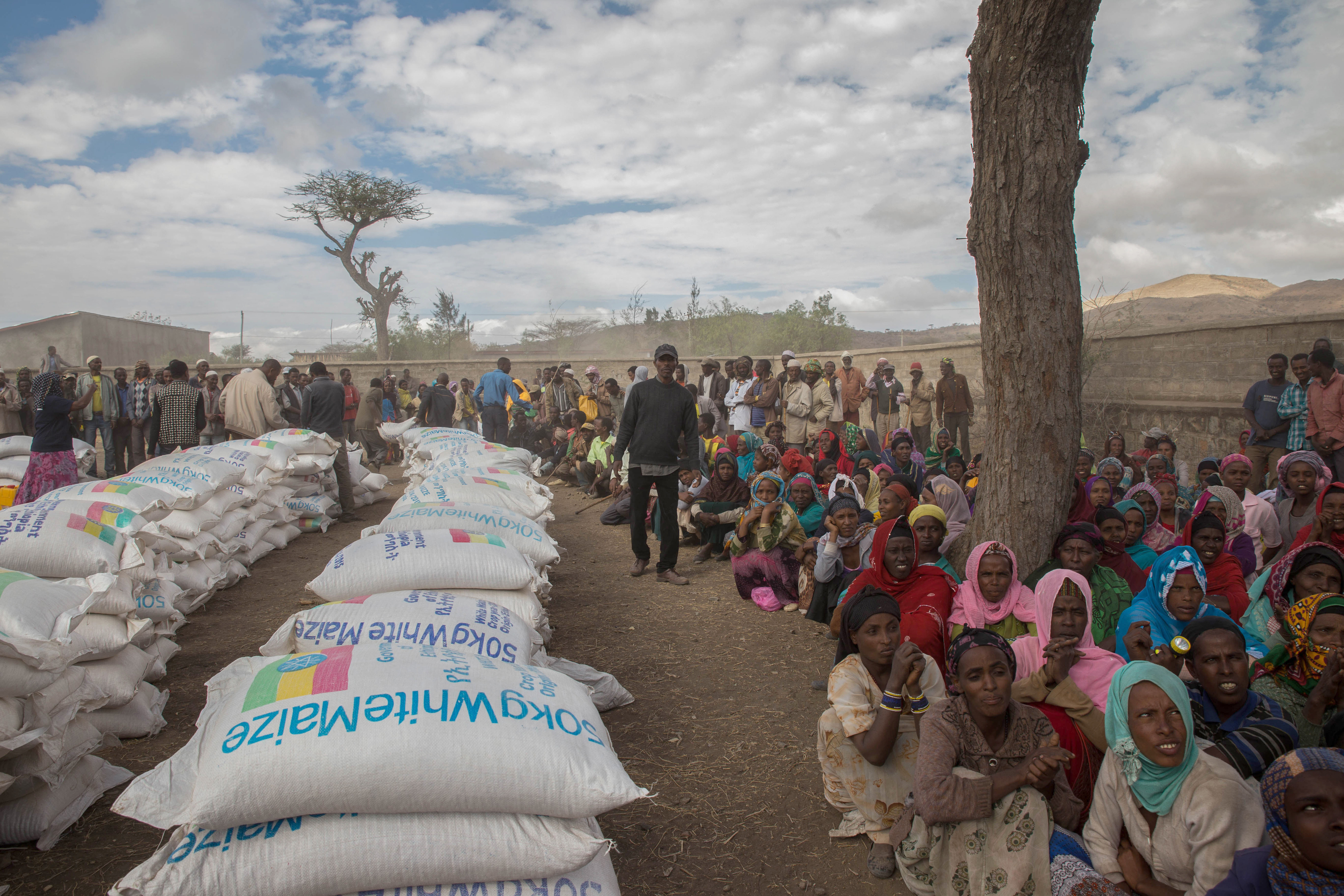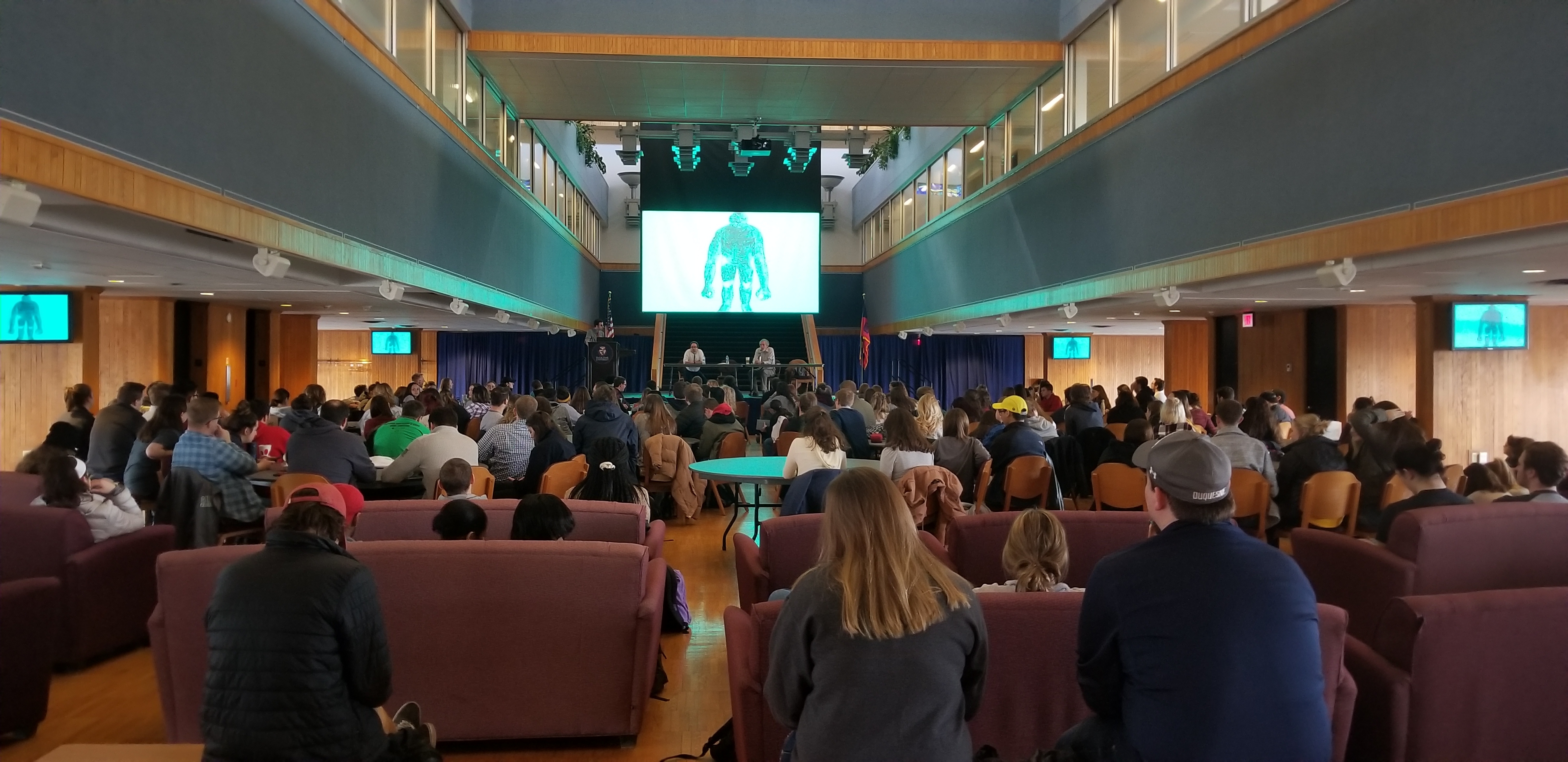By Bridget Seelinger | The Duquesne Duke
A new version of the Bible edited by a Duquesne Spiritan priest is aimed at promoting unity and understanding between the African American community and other ethnic communities.
Styled after the widely popular “Catholic Youth Bible,” the “African American Youth Bible” helps make scripture relevant to young African Americans and other readers through references to African American history and culture, according to its editor, the Rev. James Chukwuma Okoye, director for Spiritan studies at Duquesne.
In light of the recent racial tensions brought on by the protests in Ferguson and New York, this Bible has come to reach those seeking spiritual guidance, according to Okoye.
“It is meant to be a platform for all to understand one another, but you see, you cannot understand another person if you do not understand yourself,” Okoye said. “Self knowledge comes before real understanding of another person … Many African Americans are not aware of their history and traditions, or they are aware of it but they shy away from it, thinking that it wasn’t that glorious.”
Dayna Kirby, a black Duquesne sophomore, said there are benefits of having a Bible specifically for the black community during a time when there are heightened racial tensions.
“Right now with everything that is going on … doing something like this, allowing us to put ourselves and our current situation and look at it through this lense of the Bible, gives us a way to … look at it through a religion-guided way,” Kirby said. “A lot of the negativity can be combated with it.”
The “African American Youth Bible” was a four year project developed by the National Black Catholic Conference. A team of more than 200 authors in addition to illustrators and editors worked to make a Bible that they believed would be more accessible to a black audience.
A member of the National Black Catholic Conference, Bishop Edward Braxton, has been very vocal on promoting understanding between the black community and the other ethnic groups in America.
In his pastoral letter, “The Racial Divide in the United States: A Reflection for a World Day of Peace 2015,” Braxton speaks about the issues that he hopes this Bible will address.
“Before God there is no racial divide because the life, teachings, wondrous signs, suffering, death, resurrection, and ascension of Christ and His Pentecost gift of the Holy Spirit has redeemed us all,” Braxton wrote.
According to Okoye, this Bible reinforces that idea.
“The hope for this Bible is that African Americans know themselves better and from that know other people better and other people who read it to know African Americans better,” Okoye said.
Lindsay Wilcox, a contributor to the Diocese of Austin’s blog, Austin CNM, is Catholic and African American. She reviewed the bible and was very pleased with it, despite some reservations.
“If I’m going to be honest as a reviewer, I have to say that I didn’t want to like this book … I’m glad I gave it a chance,” Wilcox wrote. “If we want black Catholic youth to get on board with the faith, we have to acknowledge the rest of their lived experience. It’s hard to find a balance between extremes: pigeonholing a group that is diverse in and of itself, ignoring the reality of American racial culture and isolating faith and politics. ‘The African American Youth Bible’ is a step in the right direction.”
John Foster, a black Duquesne junior, agreed that this Bible could have positive results.
“A key aspect of our faith is to be able to relate the Scripture messages to the individual,” Foster said. “I think this Bible does a phenomenal job of incorporating the lives of African Americans. These real life examples of people walking the same path you’re walking will definitely help with vocations.There is a readability and experience [in this Bible].”
The African American Catholic Youth Bible is distributed by St. Mary’s Press and the National Black Catholic Office in Baltimore.




